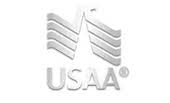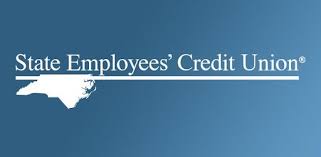Despite billions of dollars in government support and some payment flexibility from credit card companies to help small businesses survive the coronavirus pandemic, business owners still are not getting all the support they need. Small business owners aren’t even considered people under current credit card regulations. Congress left the small business community out in the cold by excluding business-branded credit cards from coverage under the Credit CARD Act of 2009. That’s a much bigger deal than you might think, too, considering all the CARD Act has done to make credit cards safer and less expensive for consumers in recent years.
Most importantly, small business owners still are subject to arbitrary increases in the cost of debt. With a consumer card, credit card companies must wait until payment is at least 60-days past-due to raise the interest rate on an existing balance. But they can do so whenever they wish with a business-card balance. So the more than one-third of small business owners who use credit cards for financing purposes never really know how much their debt will cost. And that prevents them from confidently allocating capital, causing unknown damage to the economy.
Fortunately, many major credit card companies have taken it upon themselves to extend certain CARD Act protections to their small business credit card offers. Below, you can see which issuers have adopted which protections. This should make it easier to find the best credit card for your company’s needs.
Main Findings
Bank of America, PNC Bank and BECU continue to be the most small business-friendly credit card companies, followed by TD Bank and First National Bank of Omaha.
20% of issuers still unfairly allocate payments, by not applying amounts above the minimum required to the balance with the highest interest rate.
Only 40% of issuers wait until a cardholder is 60+ days delinquent before raising rates on existing business credit card balances.
20% of issuers do not give 45 days’ notice to small business card holders before changing key account terms.
Bank of America, U.S. Bank, Citi, PNC and BECU are unique in not reporting business card activity to customers’ personal credit reports.
Issuer Policies & Scores
| Issuer | Guarantors Personally Liable? | Usage information relayed to personal credit reports? | CARD Act Protections Score | Transparency | Notable Changes |
|---|---|---|---|---|---|
| American Express | Yes | Yes, when the account is cancelled and seriously delinquent | 60% | Good | None |
| Bank of America | Yes | No | 100% | Good | None |
| Barclaycard | Yes | Yes | 85% | Good | Usage information relayed to personal credit reports |
| Capital One | Yes | Yes | 60% | Good | None |
| Chase | Yes | Yes, when the card holder is more than 60 days delinquent | 60% | Good | None |
| Citi | Yes | No, but business credit card payment history may impact ability to obtain approval for a Citi consumer credit card | 60% | Good | None |
| Discover | Yes | Yes, when the account is cancelled and seriously delinquent | 85% | Good | None |
| USAA | N/A - No business cards offered | N/A | N/A | N/A | N/A |
| U.S. Bank | Yes | No | 45% | Good | None |
| Wells Fargo | Yes | Yes, when the account is in default* | 70% | Good | None |
| Fifth Third Bank | N/A - No business cards offered | N/A | N/A | N/A | N/A |
| Synchrony Bank | Yes | Yes, when the account is cancelled and seriously delinquent | 60% | Good | None |
| PNC Bank | Yes | No, information is reported to Business Bureau only | 100% | Good | None |
| First National Bank of Omaha | Yes | Yes, when the account is cancelled and seriously delinquent | 100% | Good | None |
| TD Bank | Yes | Yes | 100% | Good | None |
| Info | Info | Info | Info | Info | Info |
| Navy Federal | Yes | Yes | 85% | Good | None |
| State Employees' | N/A - No business cards offered | N/A | N/A | N/A | N/A |
| Pentagon Federal | N/A - No business cards offered | N/A | N/A | N/A | N/A |
| BECU | Yes | No | 100% | Good | Usage information not relayed to personal credit reports |
| SchoolsFirst F.C.U. | N/A - No business cards offered | N/A | N/A | N/A | N/A |
| Issuer | No Arbitrary Interest Rate Changes | No Double Cycle Billing | No Universal Default | 45 Day Change-of-Terms Notice | Payment Allocation |
|---|---|---|---|---|---|
| X | ✓ | ✓ | ✓ | ✓ | |
| ✓ | ✓ | ✓ | ✓ | ✓ | |
| ✓ | ✓ | ✓ | ✓ | X | |
| X | ✓ | ✓ | ✓ | ✓ | |
| X | ✓ | ✓ | ✓ | ✓ | |
| X | ✓ | ✓ | ✓ | ✓ | |
| ✓ | ✓ | ✓ | X | ✓ | |
| N/A - No business cards offered | N/A | N/A | N/A | N/A | |
| X | ✓ | ✓ | ✓ | X | |
| ✓ | ✓ | ✓ | X | X | |
| N/A - No business cards offered | N/A | N/A | N/A | N/A | |
| X | ✓ | ✓ | ✓ | ✓ | |
| ✓ | ✓ | ✓ | ✓ | ✓ | |
| ✓ | ✓ | ✓ | ✓ | ✓ | |
| ✓ | ✓ | ✓ | ✓ | ✓ | |
| ✓ | ✓ | ✓ | ✓ | ✓ | |
| N/A - No business cards offered | N/A | N/A | N/A | N/A | |
| N/A - No business cards offered | N/A | N/A | N/A | N/A | |
| ✓ | ✓ | ✓ | ✓ | ✓ | |
| N/A - No business cards offered | N/A | N/A | N/A | N/A |
Historical Policy Scores & Changes
| Issuer | Usage information relayed to personal credit reports? | No Arbitrary Interest Rate Changes | No Double Cycle Billing | No Universal Default | 45 Day Change-of-Terms Notice | Payment Allocation |
|---|---|---|---|---|---|---|
| American Express | Yes, when the account is cancelled and seriously delinquent | Not Adopted | Adopted in 2012 | Adopted in 2012 | Adopted in 2011 | Adopted in 2013 |
| Bank of America | BofA no longer reports business card usage to customers’ personal credit reports, since 2014 | Adopted in 2011 | Adopted in 2011 | Adopted in 2011 | Adopted in 2011 | Adopted in 2011 |
| Barclaycard | Yes, since 2021 | Adopted in 2017 | Adopted in 2016 | Adopted in 2016 | Adopted in 2017 | Not Adopted |
| Capital One | Yes | Not Adopted | Adopted in 2011 | Adopted in 2011 | Adopted in 2011 | Adopted in 2011 |
| Chase | Yes, when the card holder is more than 60 days delinquent, since 2012 | Not Adopted | Adopted in 2012 | Adopted in 2012 | Adopted in 2013 | Adopted in 2017 |
| Citi | Citi stopped reporting business credit card usage information to personal credit reports for its since-discontinued professional card, since 2012 | Not Adopted | Adopted in 2011 | Adopted in 2011 | Adopted in 2015 | Adopted in 2020 |
| Discover | Yes, when the account is cancelled and seriously delinquent | Adopted in 2020 | Adopted in 2012 | Adopted in 2012 | Not Adopted | Adopted in 2020 |
| USAA | N/A (does not offer a business credit card) | N/A (does not offer a business credit card) | N/A (does not offer a business credit card) | N/A (does not offer a business credit card) | N/A (does not offer a business credit card) | N/A (does not offer a business credit card) |
| U.S. Bank | No, since 2016 | Not Adopted | Adopted in 2013 (first year when U.S. Bank participated in the study) | Adopted in 2013 (first year when U.S. Bank participated in the study) | Adopted in 2017 | Not Adopted |
| Wells Fargo | Yes, when the account is in default | Adopted in 2017 | Adopted in 2012 (first year when Wells Fargo participated in the study) | Adopted in 2012 (first year when Wells Fargo participated in the study) | Not Adopted | Not Adopted |
| Fifth Third Bank | No, since 2017 | Not Adopted | Adopted in 2016 (first year when Fifth Third Bank participated in the study) | Adopted in 2016 (first year when Fifth Third Bank participated in the study) | Adopted in 2017 | Adopted in 2017 |
| Synchrony Bank | Yes, when the account is cancelled and seriously delinquent | Not Adopted | Adopted in 2016 (first year when Synchrony Bank participated in the study) | Adopted in 2016 (first year when Synchrony Bank participated in the study) | Adopted in 2017 | Adopted in 2017 |
| PNC Bank | No, information is reported to Business Bureau only | Adopted in 2020 | Adopted in 2016 (first year when PNC Bank participated in the study) | Adopted in 2016 (first year when PNC Bank participated in the study) | Adopted in 2018 | Adopted in 2020 |
| First National Bank of Omaha | Yes | Not Adopted | Adopted in 2016 (first year when FNBO participated in the study) | Adopted in 2016 (first year when FNBO participated in the study) | Adopted in 2017 | Adopted in 2016 (first year when FNBO participated in the study) |
| TD Bank | Yes | Adopted in 2018 | Adopted in 2016 (first year when TD Bank participated in the study) | Adopted in 2016 (first year when TD Bank participated in the study) | Adopted in 2018 | Adopted in 2018 |
| Navy Federal | Yes | Adopted in 2020 | Adopted in 2016 (first year when Navy Federal participated in the study) | Adopted in 2016 (first year when Navy Federal participated in the study) | Not Adopted | Adopted in 2018 |
| State Employees' | N/A (does not offer a business credit card) | N/A (does not offer a business credit card) | N/A (does not offer a business credit card) | N/A (does not offer a business credit card) | N/A (does not offer a business credit card) | N/A (does not offer a business credit card) |
| Pentagon Federal | N/A (does not offer a business credit card) | N/A (does not offer a business credit card) | N/A (does not offer a business credit card) | N/A (does not offer a business credit card) | N/A (does not offer a business credit card) | N/A (does not offer a business credit card) |
| BECU | No, since 2021 | Adopted in 2020 | Adopted in 2016 (first year when BECU participated in the study) | Adopted in 2016 (first year when BECU participated in the study) | Adopted in 2018 | Adopted in 2018 |
| SchoolsFirst F.C.U. | N/A (does not offer a business credit card) | N/A (does not offer a business credit card) | N/A (does not offer a business credit card) | N/A (does not offer a business credit card) | N/A (does not offer a business credit card) | N/A (does not offer a business credit card) |
Methodology
WalletHub investigated the business credit card policies of 20 large issuers – 15 banks and 5 credit unions – to determine whether they have proactively extended important CARD Act protections (which apply by law to personal credit cards) to their small business counterparts. We scored each issuer based on its adoption of five crucial CARD Act protections, including those prohibiting arbitrary interest rate changes and unfair payment allocation practices. Information collected in April 23, 2021.
After collecting data we shared our findings with each issuer. Five of them – namely, Citi, U.S Bank, Wells Fargo, TD Bank and Synchrony Bank – either did not meet our deadline for input or did not provide any feedback.
You can find the detailed scoring framework used to evaluate each issuer below. Each metric within this framework was assigned a given weight based on its importance to the small business cardholder. All metrics were binary, with either full points or no points being allocated.
1. No arbitrary interest rate changes on existing balances (weight: 40%)
- If the issuer does not apply an increased interest rate/penalty APR to an existing balance unless the cardholder is at least 60 days delinquent = 40%
- If the issuer can apply an increased interest rate/penalty APR to an existing balance before the cardholder is at least 60 days delinquent = 0%
2. No double cycle billing (weight: 15%)
- If the issuer does not use the average balance over the past two billing cycles to determine finance charges = 15%
- If the issuer uses the average balance over the past two billing cycles to determine finance charges = 0%
3. No universal default (weight: 15%)
- If the cardholder is not considered to be in default on their credit card account because of a missed payment on a separate credit card, loan or bill = 15%
- If the cardholder is considered to be in default on their credit card account because of a missed payment on a separate credit card, loan or bill = 0%
4. 45 Day Change-Of-Terms Notice (weight: 15%)
- If the issuer provides 45 days’ notice before changing terms of card agreement = 15%
- If the issuer does not provide 45 days’ notice before changing terms of card agreement = 0%
5. Payment Allocation (weight: 15%)
- If the issuer applies the amount of a payment that is above the minimum required to the balance with the highest interest rate = 15%
- If the issuer does not apply the amount of a payment that is above the minimum required to the balance with the highest interest rate = 0%
Additional Info
The 2013 version of this study contains additional information provided by the issuers to explain their policies as well as minor CARD Act protections that they have proactively adopted but were not evaluated in our report.
The only issuer to provide any updates thereafter was U.S. Bank in 2014. It established same-day monthly due dates, implemented a minimum 24-day grace period between when a bill is made available and when payment is due, included a breakdown of different balances and promotional expiration dates on monthly statements, and began providing annual interest and fee summaries to cardholders.











WalletHub experts are widely quoted. Contact our media team to schedule an interview.